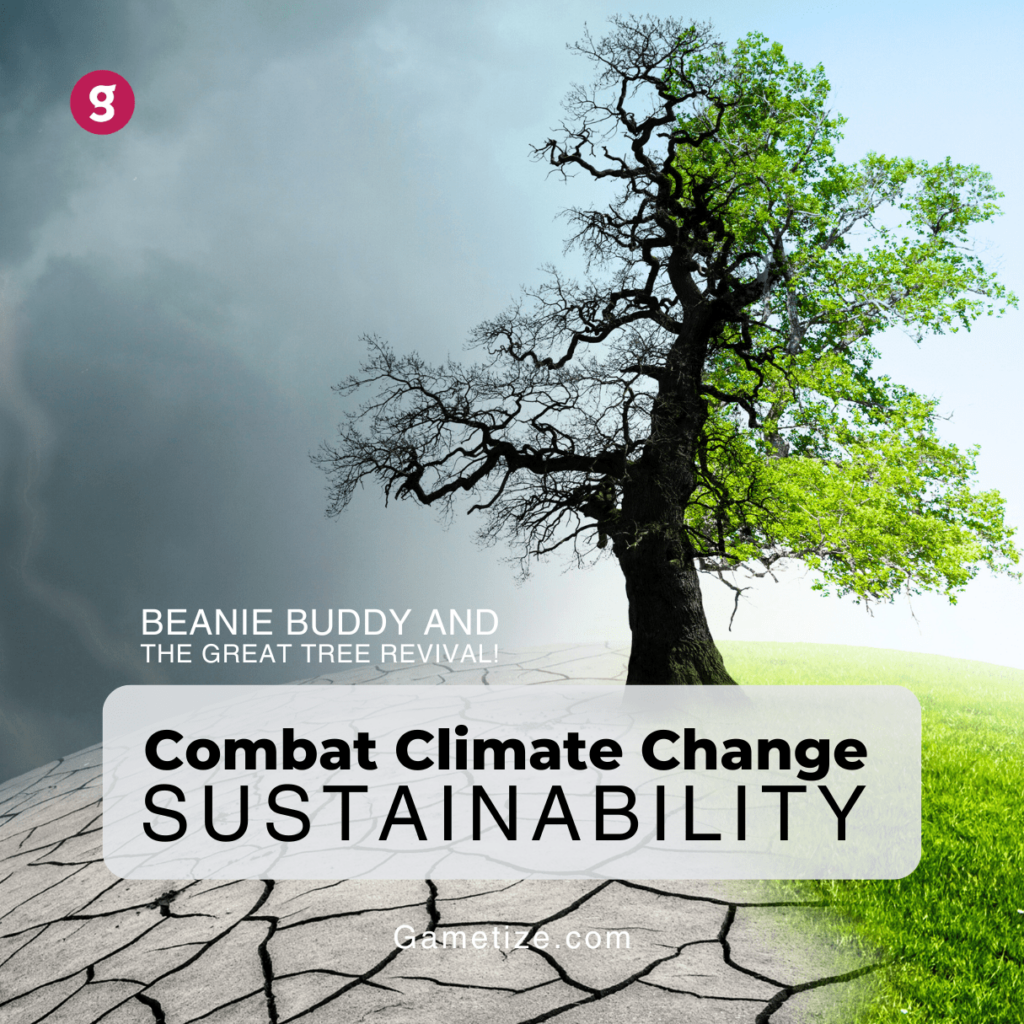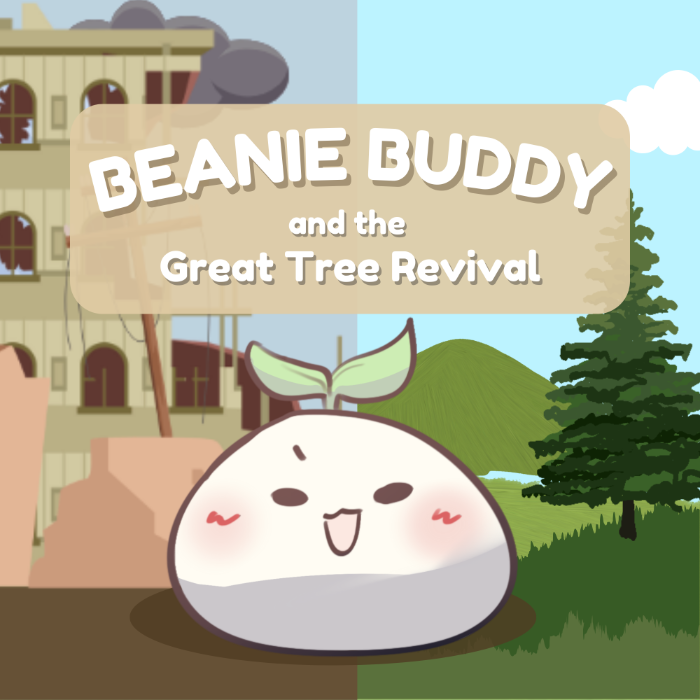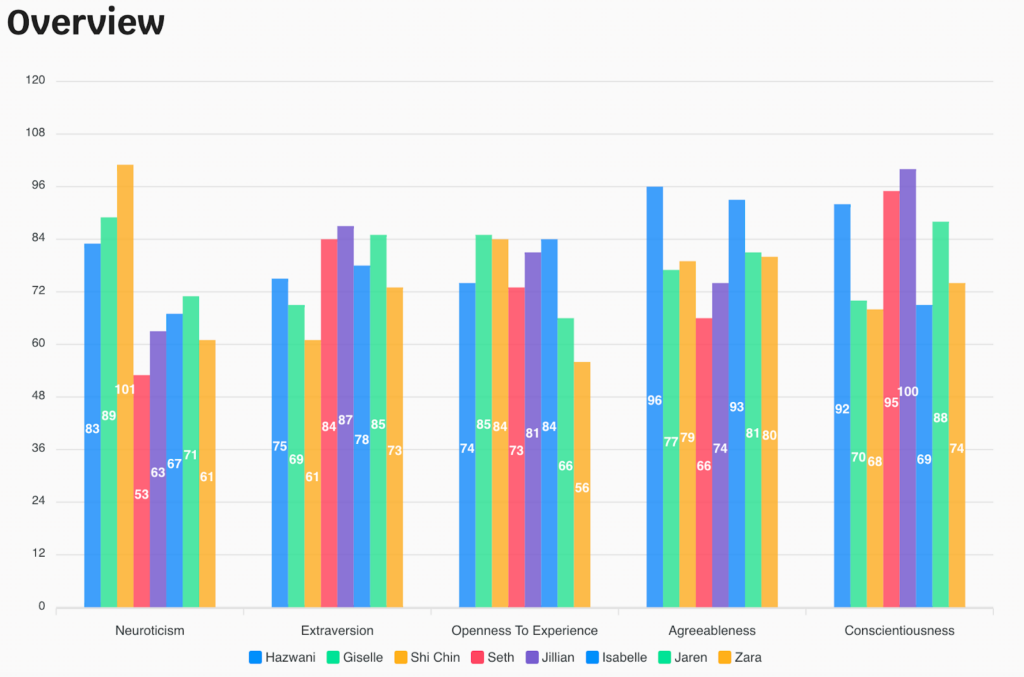Sustainability Series: Beanie Buddy and The Great Tree Revival!
1. Highlighting 6D Playbook
Define the Problem
Today’s consumerist world, powered largely by Gen-Zs and Millennials, has taken a toll on the environment. Our project focuses on Gen-Zs and Millennials in the finance industry as they make up the majority of the workforce and tend to adopt a consumerist lifestyle due to their high purchasing power and preference for convenience.
Determine Goals
Our primary goal is to raise awareness of the environmental impact of employees’ actions and ensure they retain knowledge about sustainability after completing the game. Through our challenges, we aim to convince at least 70% of employees to adopt sustainable practices.
Decide Target Behaviours and Emotions
We focus on building a community where players can share their experiences and have conversations regarding sustainability and their consumption habits at their workplace. Employees are empowered to take ownership in making a positive impact on the environment.
Describe and Profile Players
The players involved are predominantly employees in the finance industry. To incentivise them to complete the challenges, we have included elements of competition and reward in the game.
Design Gamification Strategy
Through our storyline and illustrations, we aim to create an immersive experience which motivates employees to participate actively. Our game follows the growth of “Beanie Buddy”, from a seed to a full-grown tree. As the plant grows, this symbolises the players’ positive environmental impact as they gain more knowledge and become more sustainable.
Diagnose and Analyse Content
To ensure the continuous improvement of the game, we conducted a survey to gauge its effectiveness. This feedback provided us with insights, such as what elements were preferred, limitations of the game, and future improvements that can be made.
2. Addressing a Real World Issue
Day 1 | The carbon calculator activity allows players to understand their environmental impact, which encourages them to be more cognisant of the role they play and regard this social issue as an individual one. |
Day 2: E-commerce | Players who choose express delivery will realise it is environmentally harmful. This realisation that their personal choice matters gives them a sense of self-efficacy as they are more confident that they can bring about a meaningful impact if they choose to be more sustainable. |
Day 3: Fast Fashion | The activities of donating and thrifting clothes encourage players to take action starting from themselves. This inculcates a sense of ownership and drives them to break bad habits and form good ones. |
Day 4: E-waste | Here, we first provided succinct information through videos and articles to attract the players’ attention. Thereafter, we quizzed them to ensure they retained and absorbed the information of the harms brought about by E-waste disposal. |
Day 5: Disposable Culture | The sharing of photos harnesses the power of social influence. This motivates players to emulate the actions of others. |
Day 6: Waste Management | The activities to build recycling and compost boxes are examples of how we encourage the players to build good habits. By ensuring that they have the equipment to be more sustainable and by kickstarting the process, they are encouraged to adopt these sustainable habits. |
Day 7 | The tree’s growth appeals to the player’s emotions. Players derive positive feelings of hope and pride upon completion of the challenges, which drives them to be more sustainable. |
3. Our Learnings and Reflection on the Project and Issue
Before embarking on the project, we attempted a personality quiz based on the Big Five Model, and compared our results. Through analysing the Model, we were able to better recognise the differences in our personalities, and how to effectively work together.
From Figure 1, there are a variety of personality dimensions displayed by the team. For instance, Shi Chin and Giselle displayed high levels of Neuroticism, Isabelle and Hazwani displayed high levels of Agreeableness, Seth, Jillian and Jaren displayed high levels of Conscientiousness, and Zara displayed high levels of Openness To Experience. Attempting this quiz allowed us to recognise where our team members lie within the Model, and enabled us to tweak our approach toward managing our tasks and team dynamics.
This Model paved the establishment of a successful team. With a better understanding of our differences, we made adjustments that reduced miscommunication and conflicts. As a result, we established a bonded, high-performing team that is able to complete tasks efficiently.
Consumerism is driven by our fixation on the newest trends, which has propagated a culture of materialism and the constant acquisition of the latest fads. As a societal-wide issue, we acknowledge that adopting sustainable behaviour is a shared responsibility which requires consumers’ ongoing commitment and awareness.
Through our project, we recognised that consumerism must be tackled at its core, specifically at the individual level wherein consumers make impulsive and convenience-driven choices. To do so, we relied on technology – that is, the Gametize platform – as the solution as we believe that such gamification can reduce overconsumption by modifying consumer behaviours with positive reinforcement, education, and engagement. As players derive satisfaction from playing our game, their intrinsic motivation will then stimulate them to make better and more sustainable decisions.
1. Play the game first.
2. Use the Template game for your own initiatives.
Credits: [AY2023/24] G4 Team 4 – Jaren Chan Ding Jie, Tan Shu Yi Jillian, Zara Nomi Hartanto, Nur Hazwani Binte Muhammad Halmi, Sim Hui Ting Isabelle, Seth Koh Hau Jer, Wong Shi Chin, Tan Ying Ru



